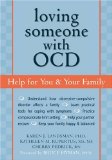Difference Between OCD and OCPD
OCD stands for Obsessive Compulsive Disorder. It is a type of anxiety disorder, where one experiences a recurrent obsession and compulsion. A person having an OCD becomes trapped in a repetitive thought and preoccupied with behaviors that are distressing and senseless which are difficult to overcome. If OCD is left untreated it can harm the person’s capacity to function in his daily routine. OCD was a rare disease perversely, but a survey was conducted by the National Institute of Mental Health (NIMH) shows that two percentage of the population is being affected. It is as common as the other mental illnesses like bipolar disorder and schizophrenia. There are some undesirable impulses that repeatedly run in the mind of an OCD person. Obsessions are impossible to control. For example an individual is preoccupied with the thought that his hand is contaminated, and he must wash them. As a response to this obsession, the person resorts to repetitive behaviors called compulsions. Some common compulsions are washing, counting, checking, repeating and hoarding.
OCPD stands for Obsessive-Compulsive Personality Disorder. It is a type of personality disorder which involves an obsession with rules, organization and perfection. OCPD can be diagnosed when behaviors become persistent and disabling to a person. A person with OCPD often becomes upset when he loses his control. In some situations the person becomes angry or emotionally withdraws. Expression of feelings often become difficult for the person having OCPD. Obsessions are impulses, thoughts, ideas or images that do not go way. Compulsions are behaviors that a person feels he must carry out over and over. Some common compulsions are requesting, cleaning, checking, and symmetry.
The main difference between OCD and OCPD is the presence of obsessions and compulsions. OCPD does not have obsessions and compulsions. OCD person spend much amount of time engaging in tasks than the person with OCPD. For example, a person with OCD tends to make a list over and over again to prevent the death of his loved one. On the other hand OCPD person might just make a list as a strategy to improve efficiency. OCPD person performs activities such as list making or organizing of items where as an OCD person is distressed by doing these tasks. OCPD seeks treatment because of the problems caused between him and his family, friend or lover. OCD seeks treatment because of the psychological stress, which are caused by the compulsions and obsessions.
SUMMARY:
1. OCD is Obsessive Compulsive Disorder where as OCPD is Obsessive-Compulsive Personality Disorder.
2. Obsessions and compulsion are present in OCD and not present in OCPD
3. Symptoms of OCD often fluctuate at times, but with little change in personality.
4. OCPD seeks treatment because of some conflicts; OCD seeks treatment because of psychological stress.
5. A person with OCD is preoccupied with behaviors that are senseless while a person with OCPD is obsessed with rules, organization and perfection.
- Difference Between Cell Wall and Cell Membrane - December 19, 2009
- Difference Between Evaporation and Boiling - December 19, 2009
- Difference Between OCD and OCPD - December 19, 2009


I enjoyed your article and found very usual information. I am doing an article on societies misconceptions of OCD and understanding the true meaning. I feel the term is tossed about easily in society as an insult or funny joke rather than understanding the true meaning and the sad disorder it really is.. I would love to reference a link to your site to this specific article if that would be okay with you. My email is listed above, feel free to let me know how you feel.
Thank you for your time and information.
Have a blessed day.
Valerie